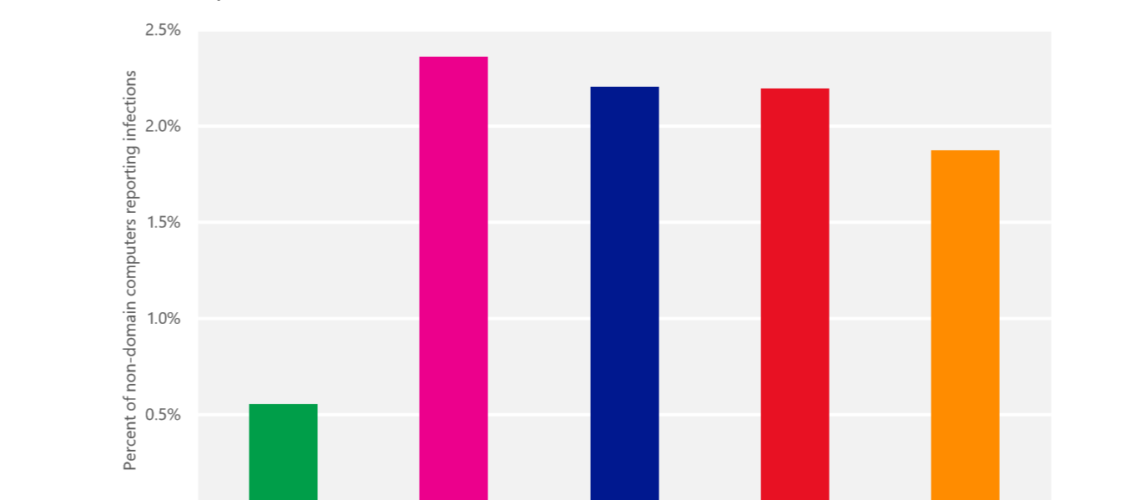According to a recently published Microsoft Security Intelligence Report, almost 10 % of Windows 8 consumers are using out-of-date antivirus software, making their computers four times more likely to get infected with malicious software than protected ones.
Updating AV software keeps your virus signature database up to date with the latest malware threats. However, based on information, gathered from Malicious Software Removal Tool (MSRT) report details, Microsoft security experts have determined that nearly one in every ten consumers uses a trial version of an AV program even after it has expired, leaving their computers much more vulnerable than they could imagine.
Most of the popular real-time security products offer updates for a limited duration – commonly about three months and require paid subscription afterwards. When a security program stops receiving updates, it loses the ability to identify the signature of the latest malicious software. Nevertheless, consumers still use them, the general notion being that it still provides some level of protection. According to the Microsoft report, however, computers running expired AV protection software are nearly as unsafe as those with no protection at all, and four times more likely to get infected than computers with updated signature database.
As stated by the report, two vendors account for the majority of expired AV software use – 86% combined, which ultimately has a significant impact on their ability to offer protection. In an interesting twist, users who have experienced malware-related problems due to expired signature database are actually more inclined to blame the vendor for releasing a sub-par product.
Bears remembering, however that these findings concern mostly end users, since more than 90 % of company systems generally use updated real-time AV protection – compared to the 83 % of consumers.
The habit of using expired protection is said to be rooted in the general apathy towards paid security products, the sense of ineffectiveness of anti-malware products regarding modern threats, and the growing availability of free antivirus protection programs.
A global study recently stated that only about 51 % of end consumers actually pay for security, whereas the remaining number of people rely on free software – mainly Avast and Microsoft Security Essentials/Windows Defender.

